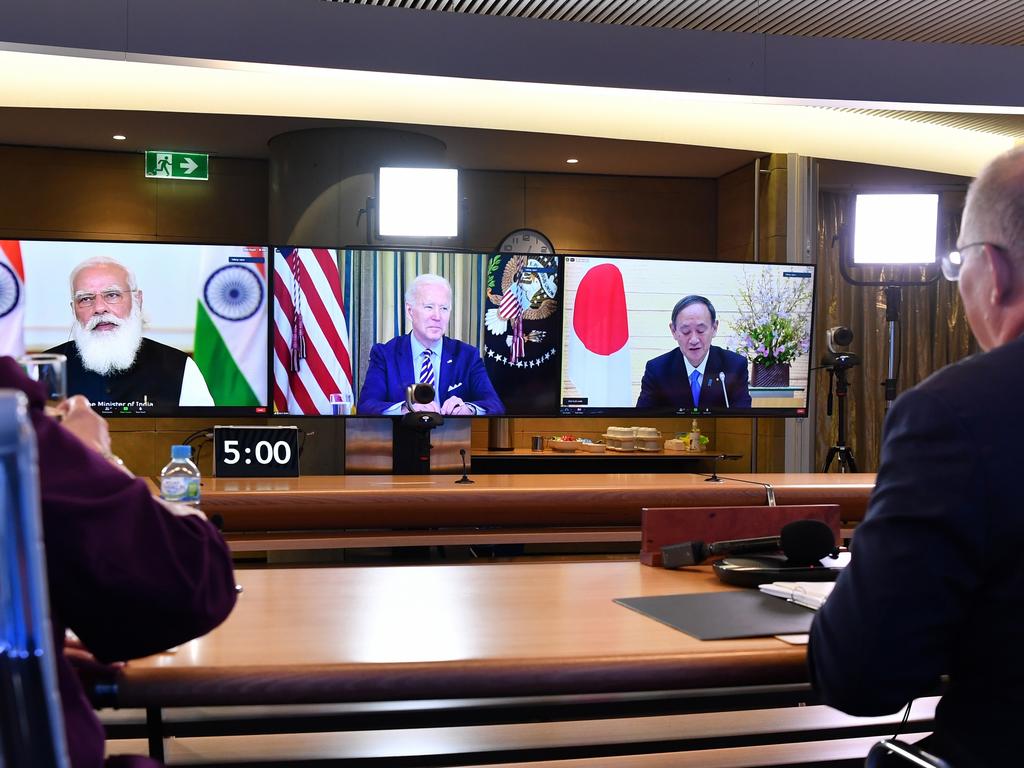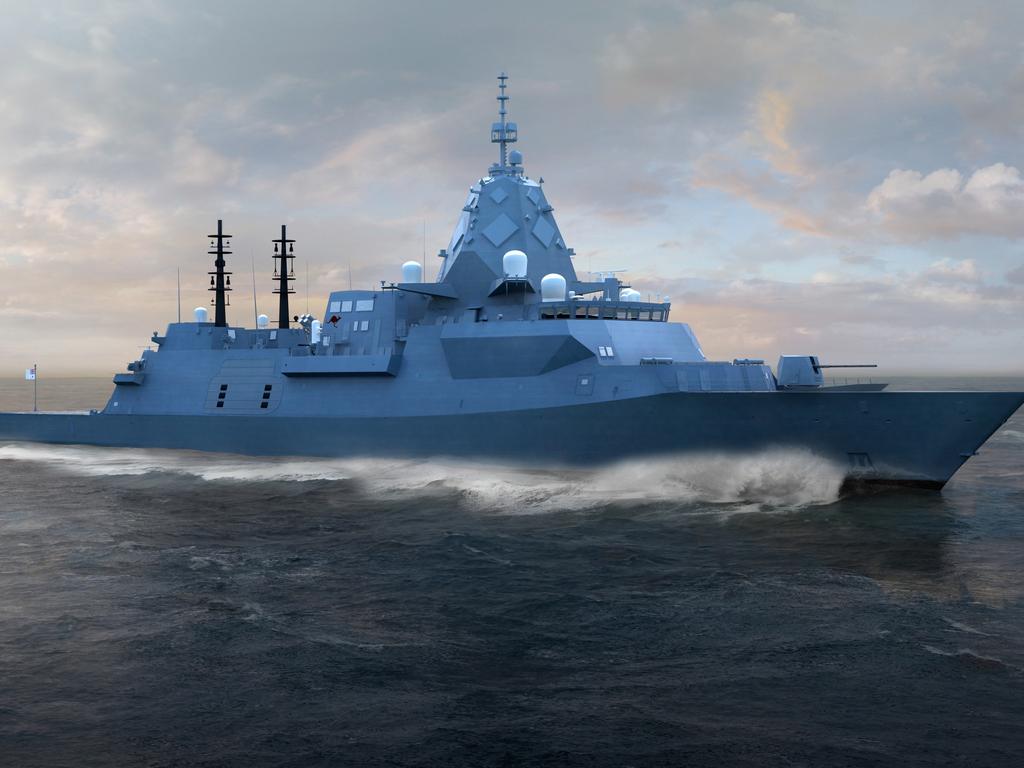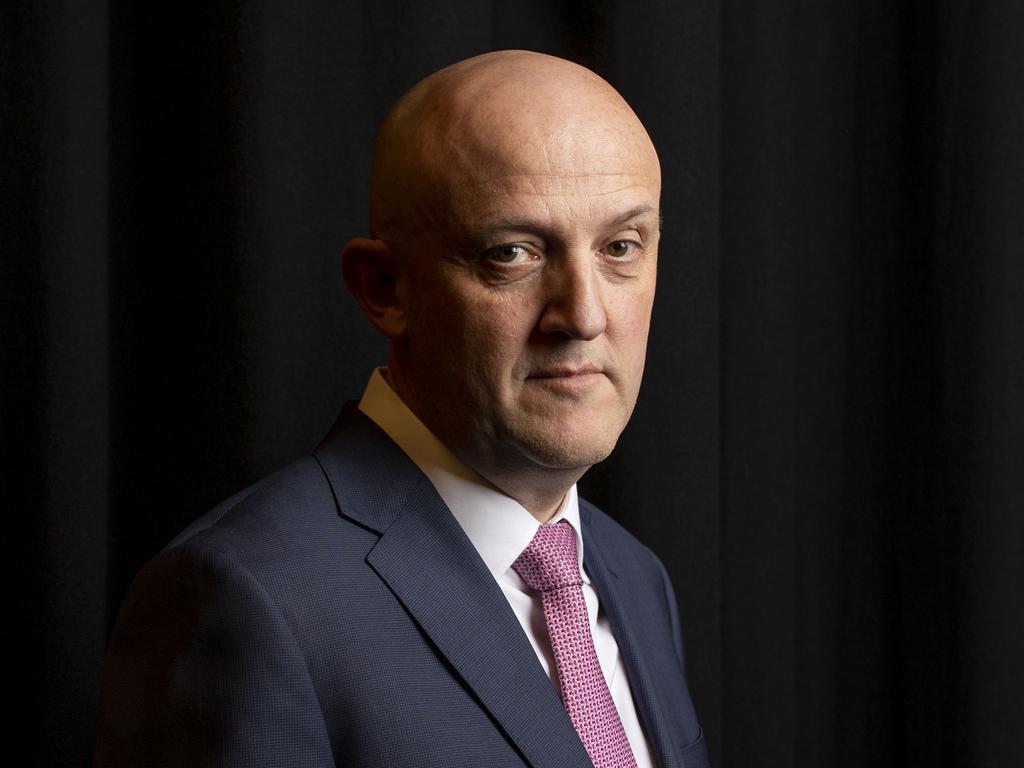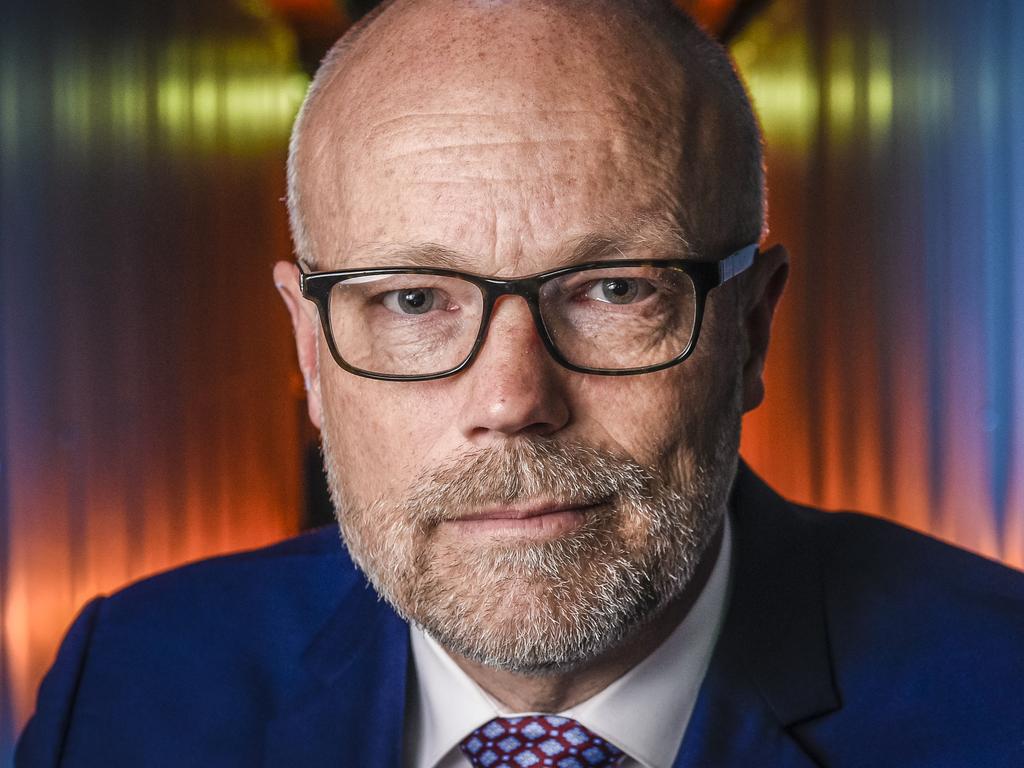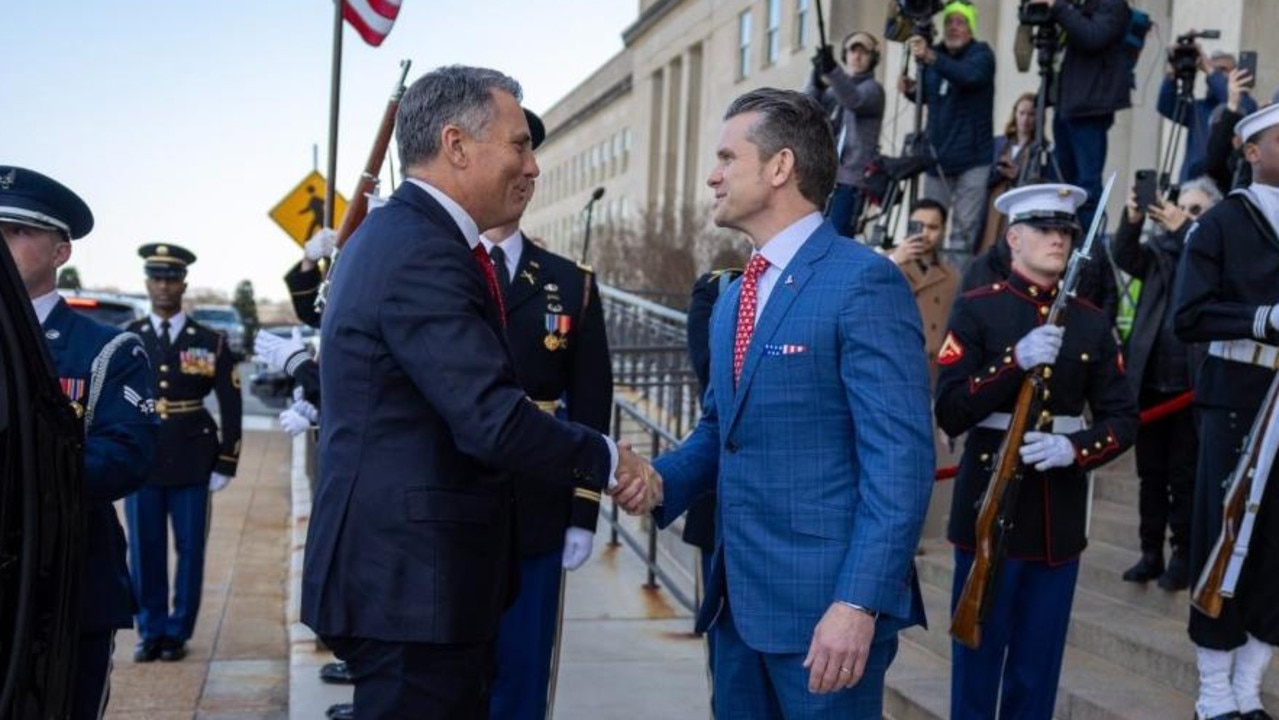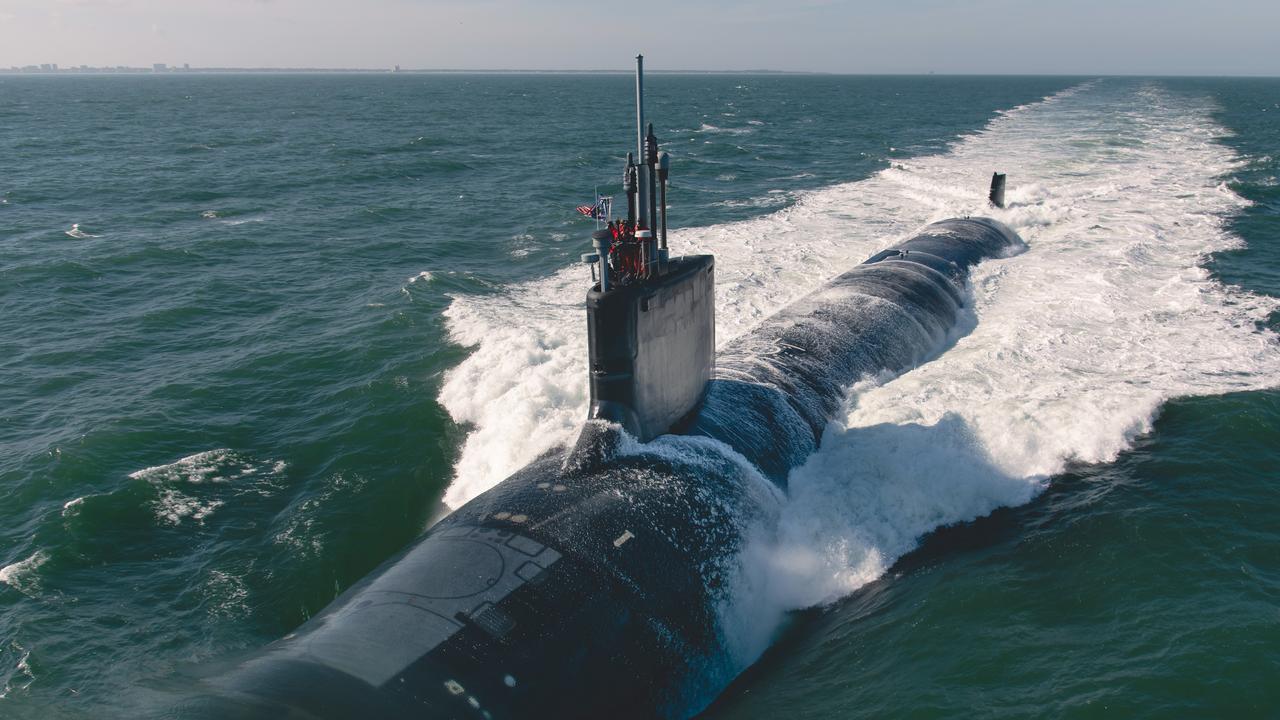Quad unease at China, Russia ‘no limits’ pact
China and Russia’s new ‘no limits’ partnership will be at the top of the agenda at Friday’s Quad meeting in Melbourne.
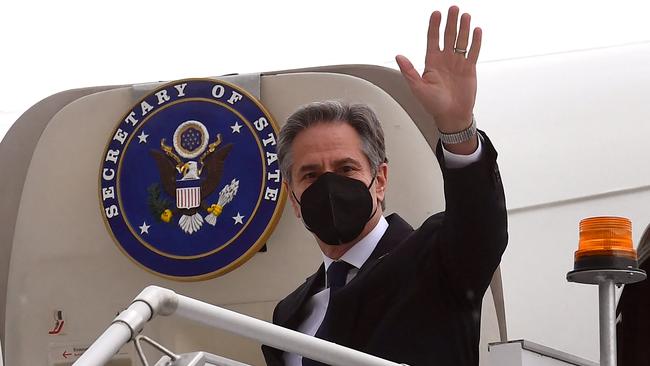
China and Russia’s new “no limits” partnership to stand up to the West will be at the top of the agenda at Friday’s Quad meeting in Melbourne, with Foreign Affairs Minister Marise Payne declaring the pact was “completely at odds” with Australia and its allies’ vision for the global order.
Senator Payne said on Wednesday that her meeting with US Secretary of State Antony Blinken, India’s Subrahman-yam Jaishankar and Japan’s Yoshimasa Hayashi was part of a wider push to protect sovereignty and democratic freedoms, and ensure nations were free from coercion by authoritarian nations.
Mr Blinken flew into Melbourne on Wednesday afternoon, after spending “a chunk of this trip” on the phone to global counterparts about the Ukraine crisis.
While the US remains on high alert for a potential Russian attack on its neighbour, Mr Blinken said the Biden administration had a “sustained focus” on the Indo-Pacific, “and that’s why we’re heading to Australia”. He said the Quadrilateral Security Dialogue was emblematic of US efforts towards “building, energising, (and) driving different coalitions of countries” to deal with pressing regional issues.
“The Quad is becoming a powerful mechanism for delivering; helping to vaccinate a big part of the world and getting a lot of vaccines out there; strengthening maritime security to push back against aggression and coercion in the Indo-Pacific region; (and) working together on emerging technologies and making sure that they can be used in positive ways, not negative ways,” he said.
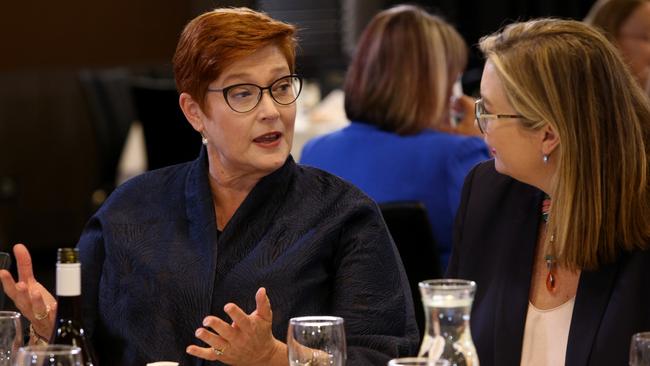
In Canberra on Wednesday, Senator Payne met with her Lithuanian counterpart Gabrielius Landsbergis, whose country – like Australia – has borne the brunt of Chinese economic coercion. Mr Landsbergis, who is visiting Canberra to open the first local Lithuanian embassy, said China and Russia were working together “as disrupters of the global rule-based order”.
Australia has vowed to back Lithuania in its World Trade Organisation battle against Chinese trade bans, which were instituted after Vilnius agreed to host a Taiwanese trade office that bore the territory’s name rather than that of its capital, Taipei.
“For quite a while Australia was probably one of the main examples where China is using economy and trade as a political instrument, or one might say even as a political weapon,” Mr Landsbergis said.
“Now Lithuania joins this exclusive club … But it is apparent that we’re definitely not the last ones, especially if these practices are not stopped with the instruments that we have.”
Senator Payne said it was vital for “like-minded nations” to band together to counter coercion and authoritarianism.
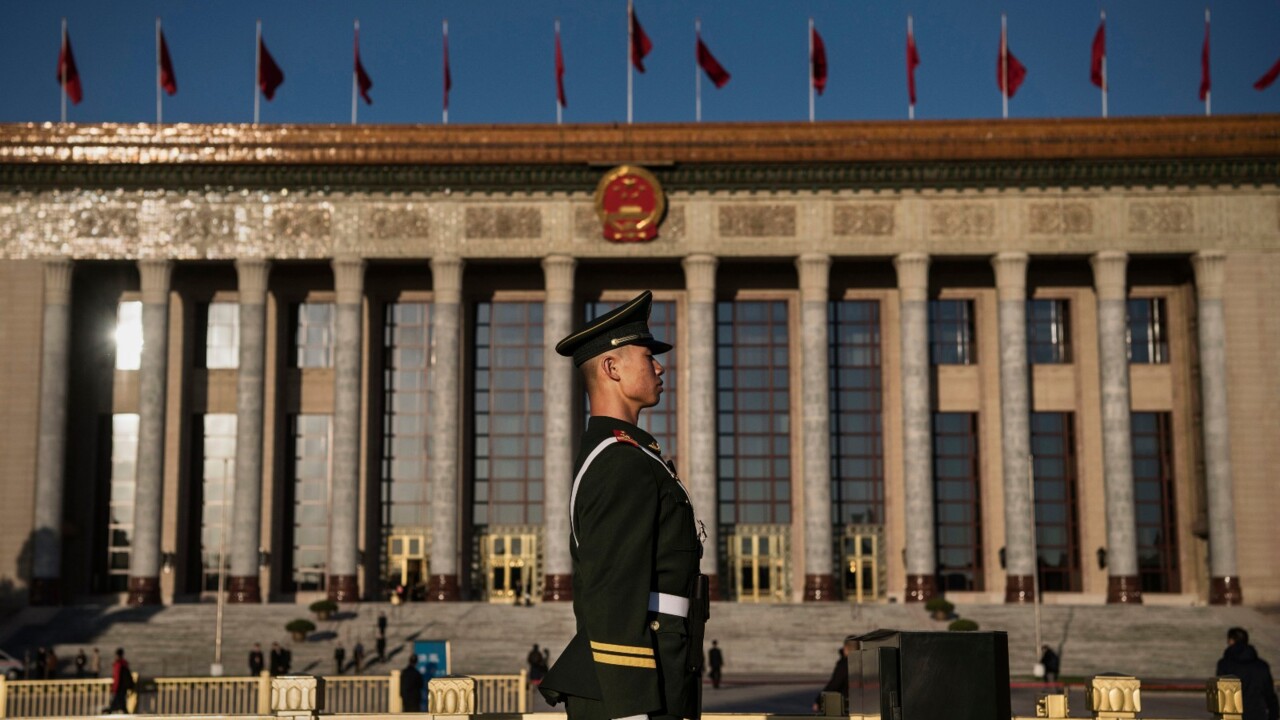
The Quad foreign ministers will work to ramp up vaccine distribution across the region, boost co-operation on cyber and critical technologies, tackle Chinese disinformation and economic coercion, and improve collective efforts to address climate change.
The meeting comes a week after Chinese President Xi Jinping and Russian President Vladimir Putin vowed unprecedented co-operation, backing each other over stand-offs on Ukraine and Taiwan with a promise to collaborate more against the West.
Senator Payne said the new authoritarian partnership “sets out a vision of the global order that is at odds with that of Australia and that of our allies and partners, and I’m confident that includes all of our Quad partners”.
ANU National Security College head Rory Medcalf said the increasing closeness of China and Russia would “put India on the spot” over its longstanding ties to Moscow.
“India has its own distinct relationship with Russia which is weaker than it used to be – it has leaned more closely to the US in recent years – but it still has a relationship where it wants to position itself as not aligning against Russia,” he said.
“So this Quad meeting will be an interesting barometer on how much India has shifted.”


